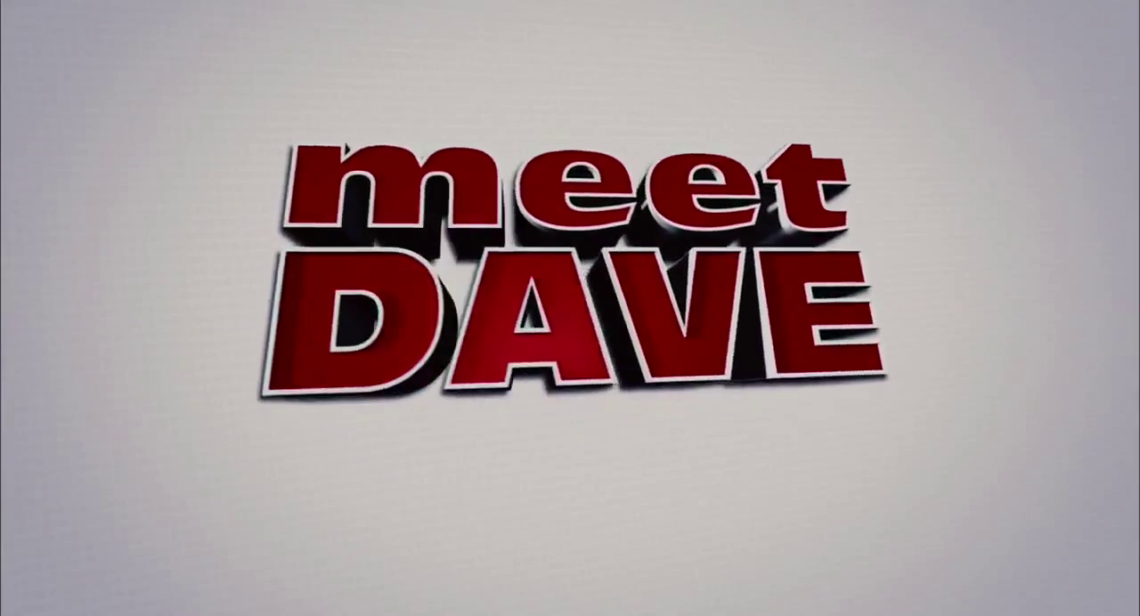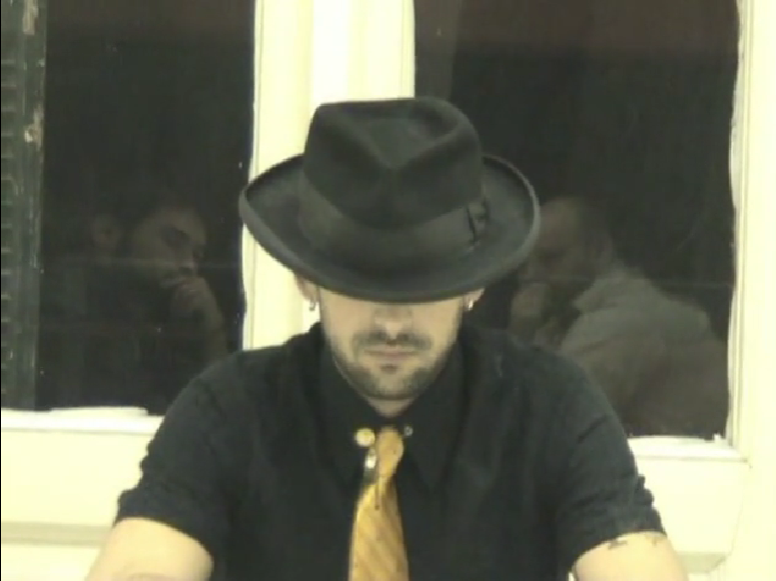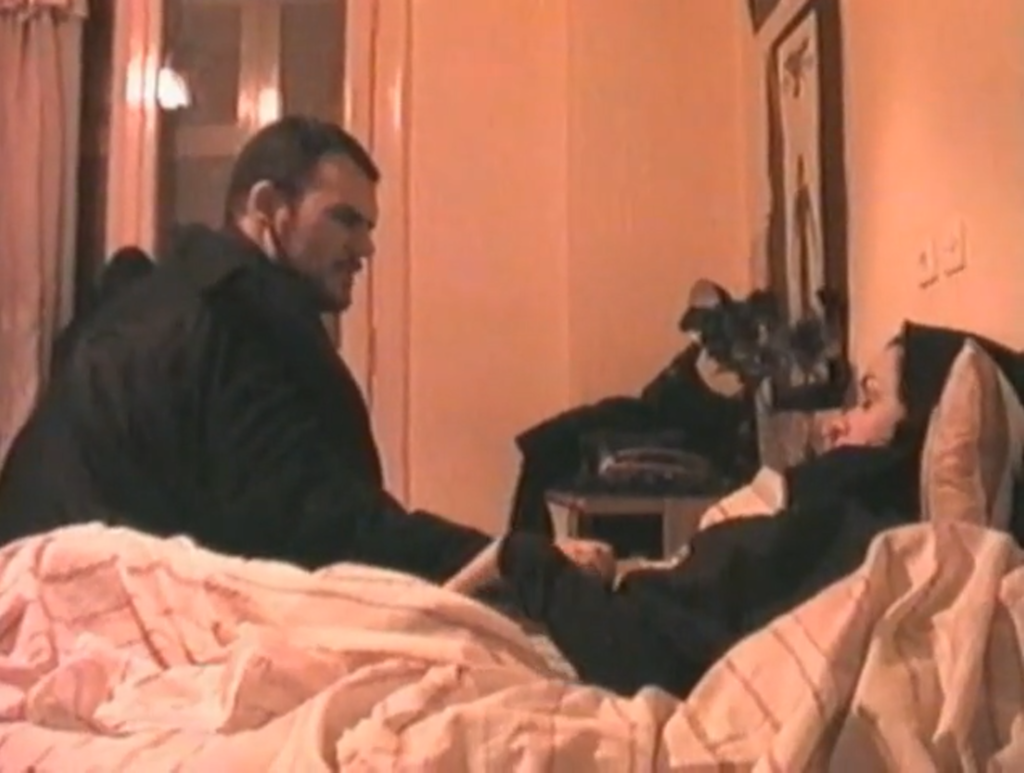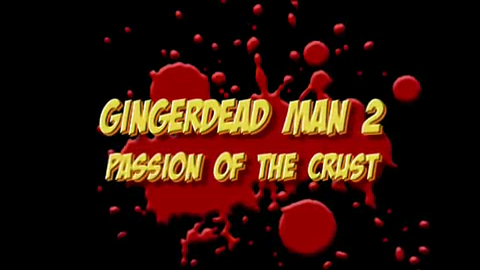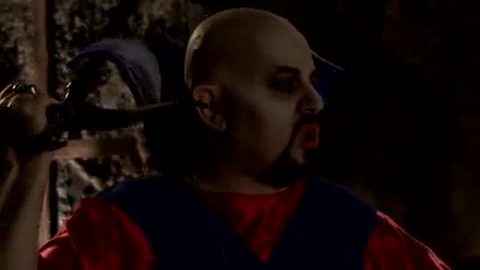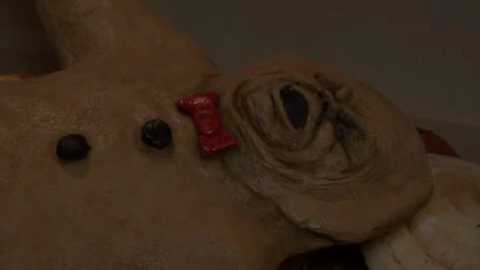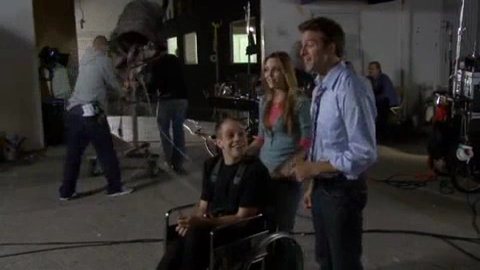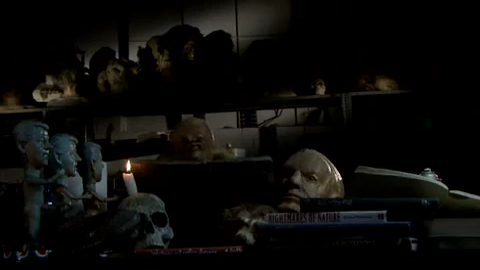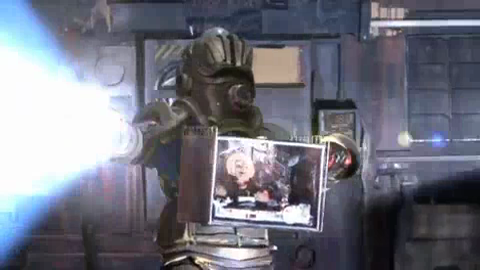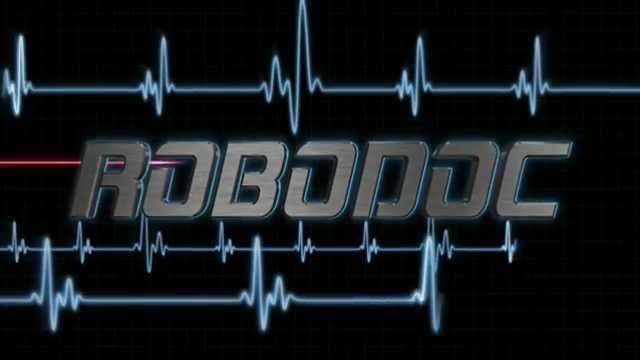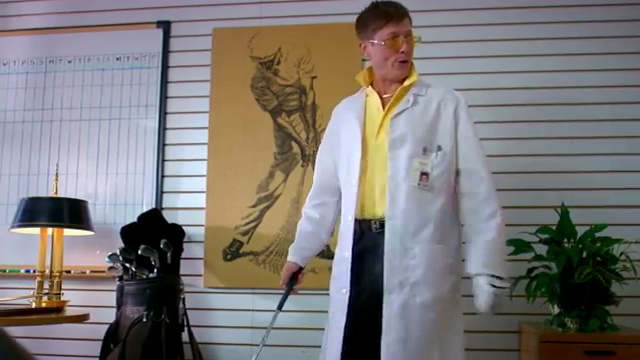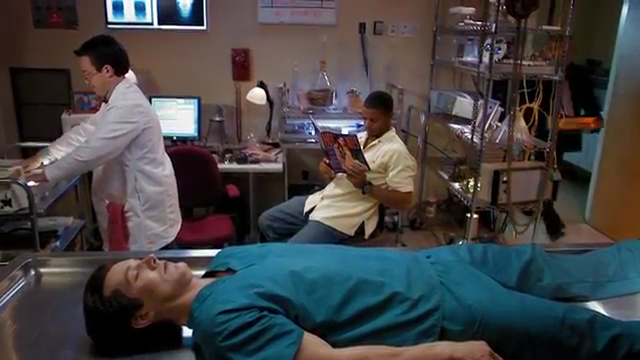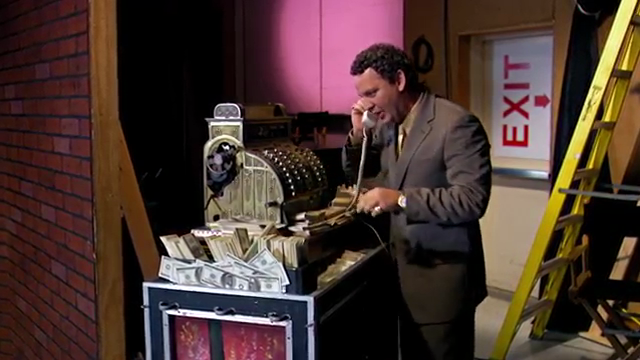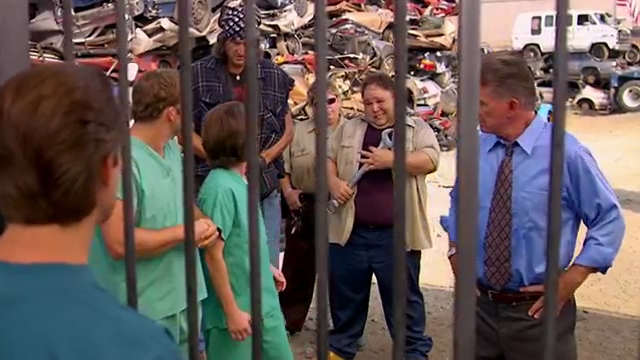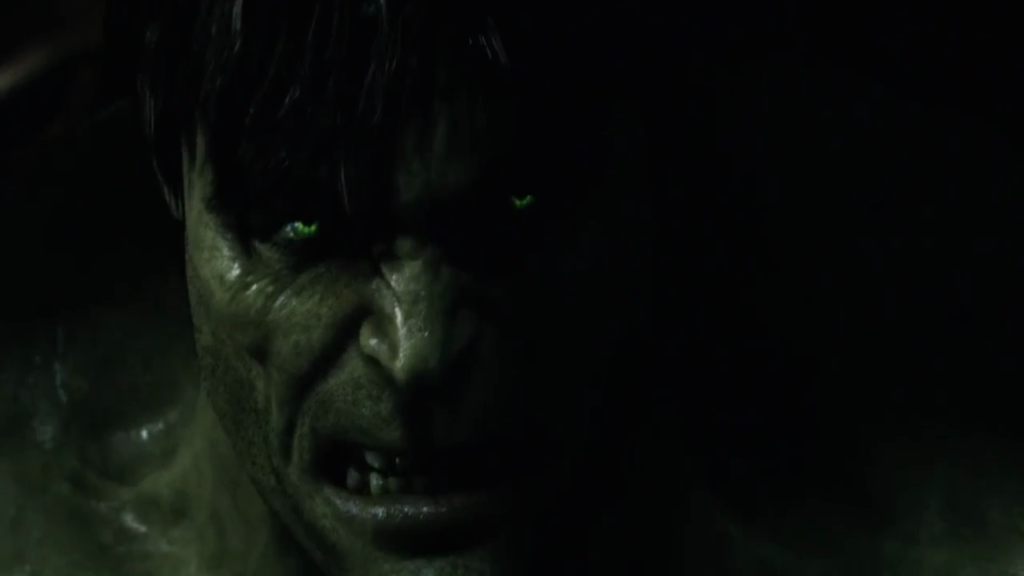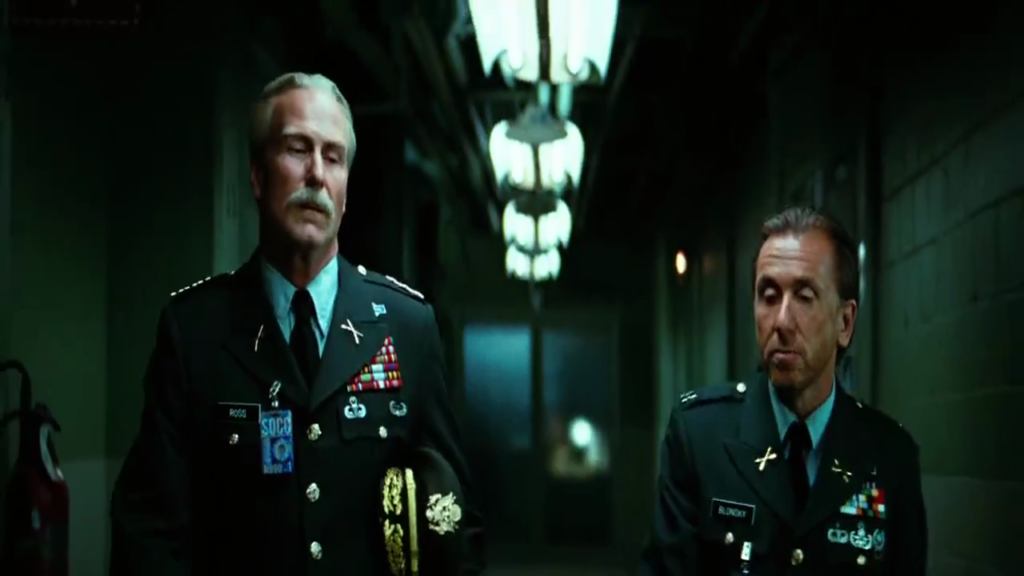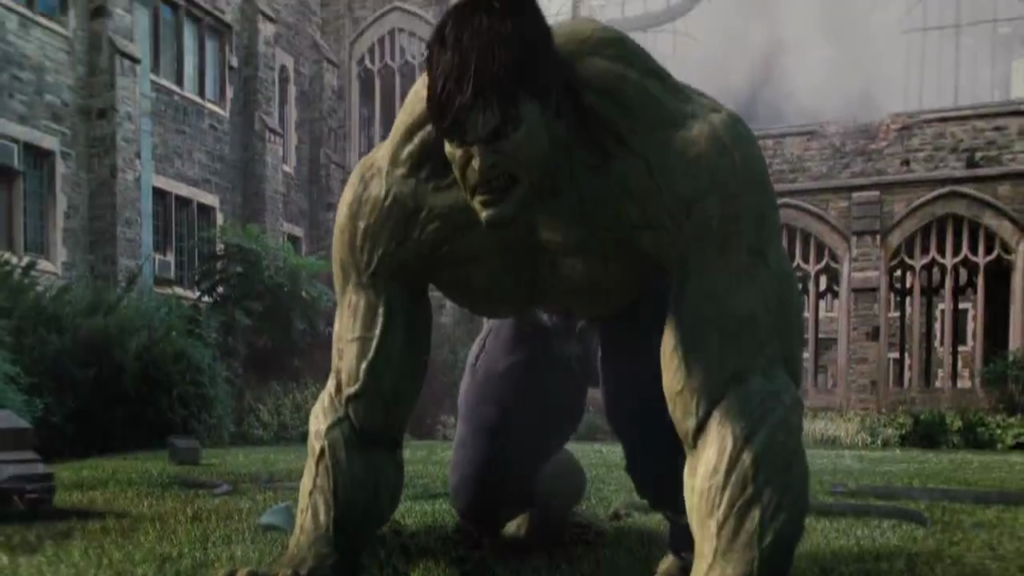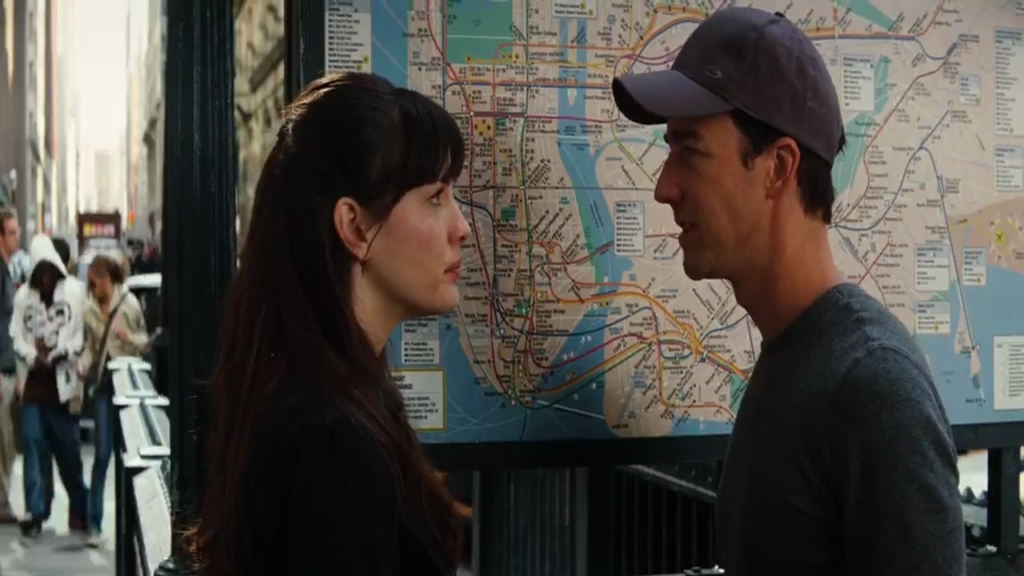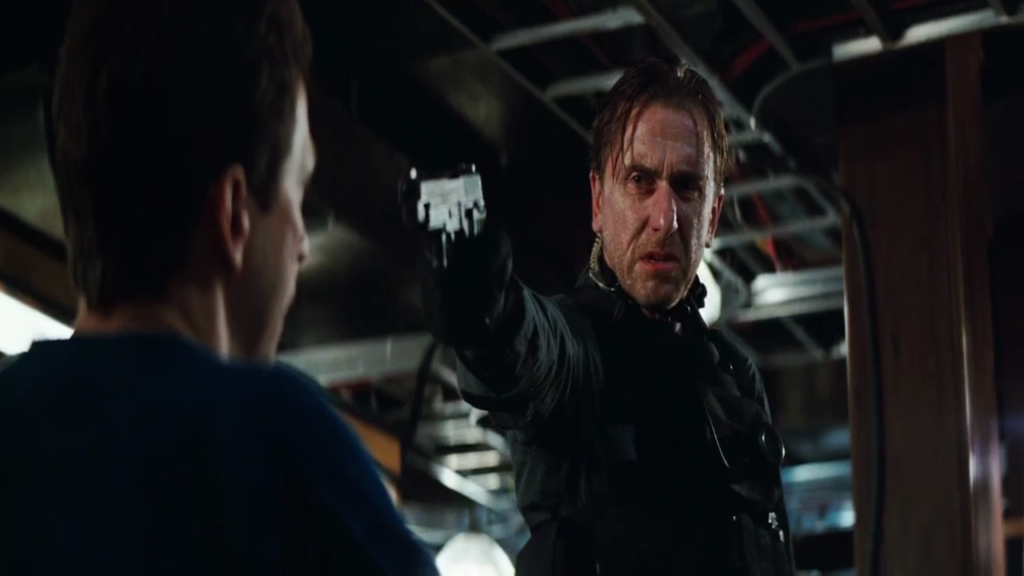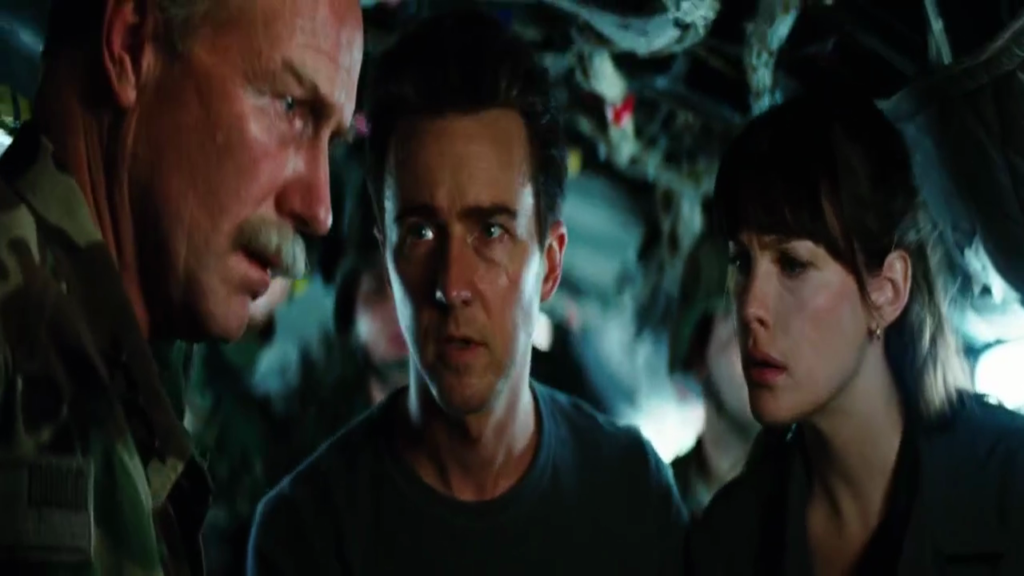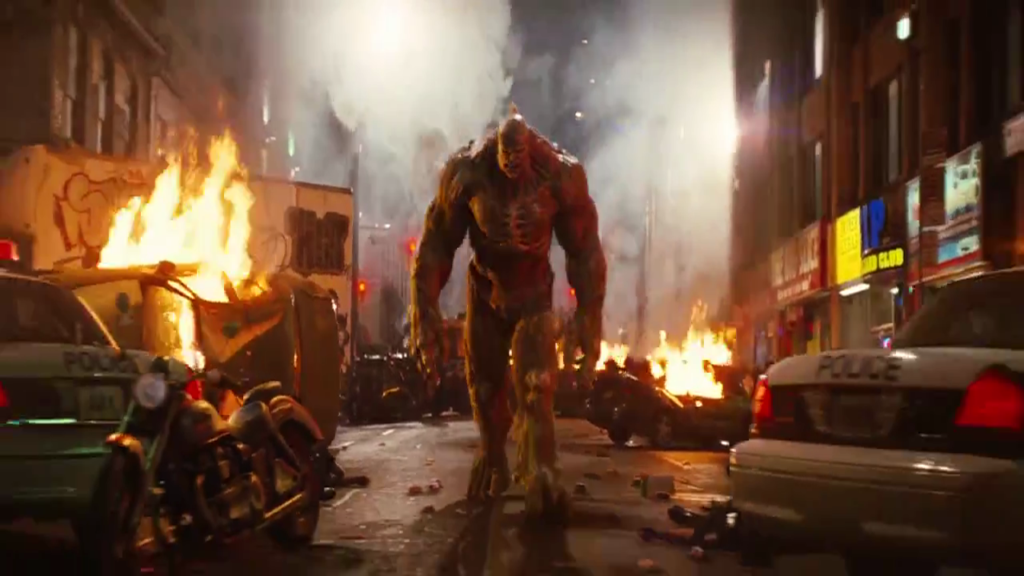-
#598 – Meet Dave (2008)
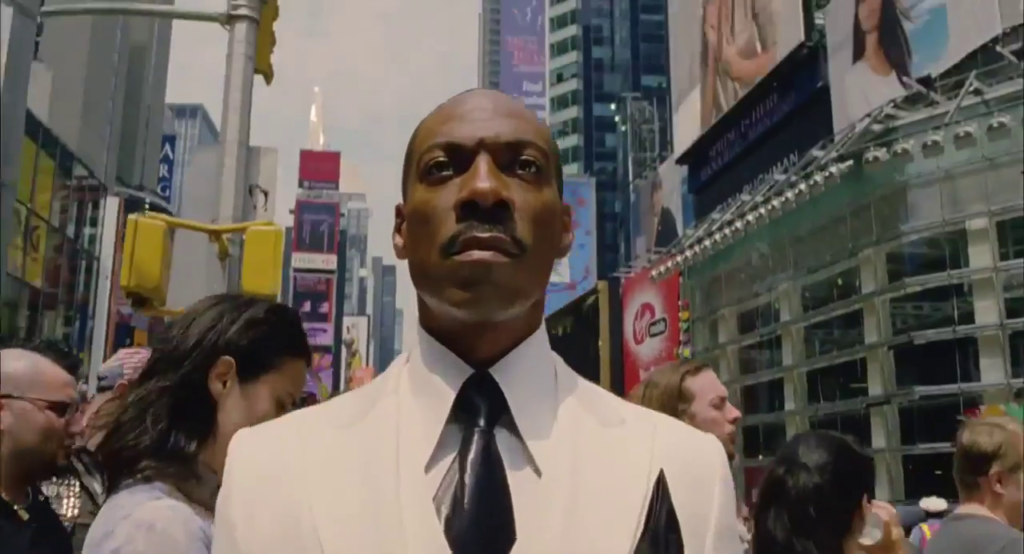

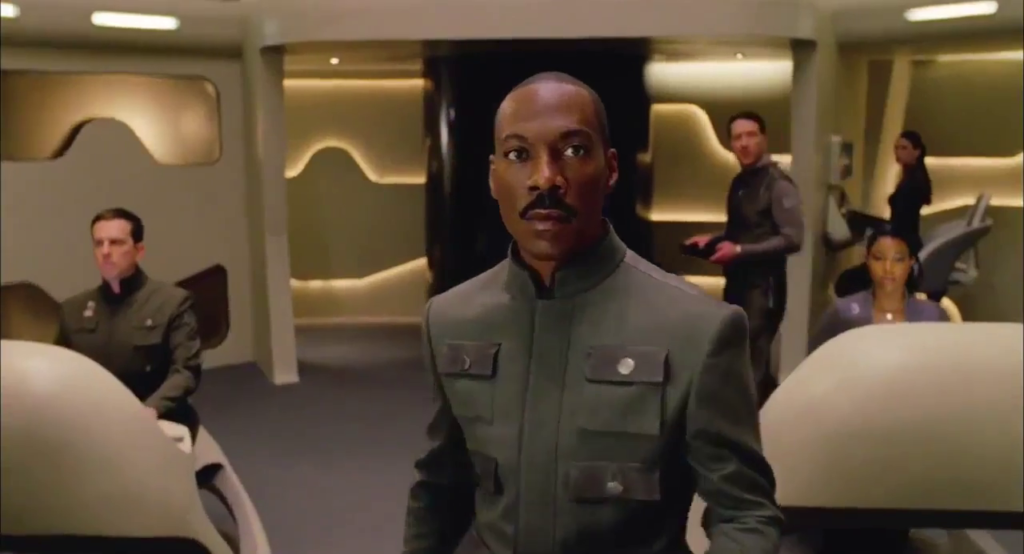
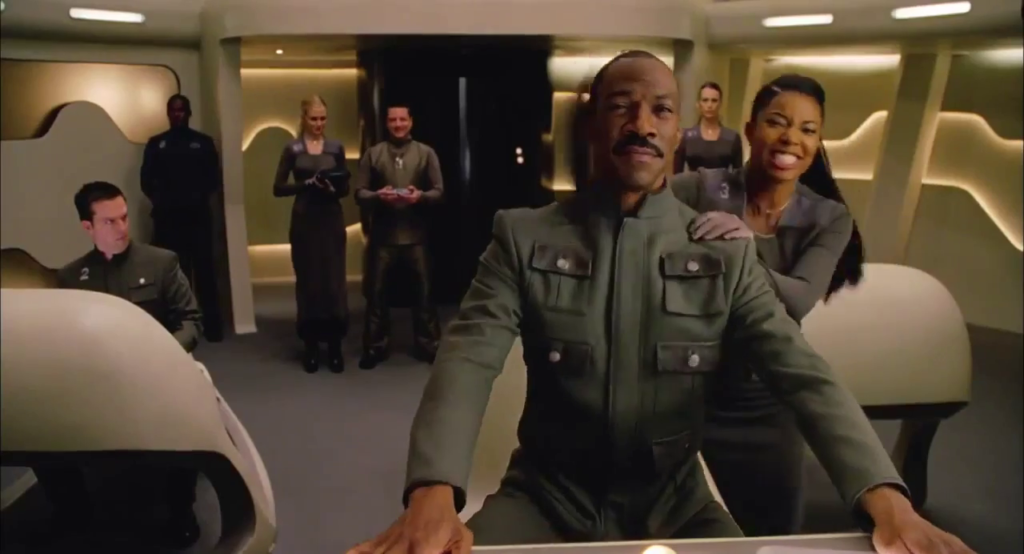
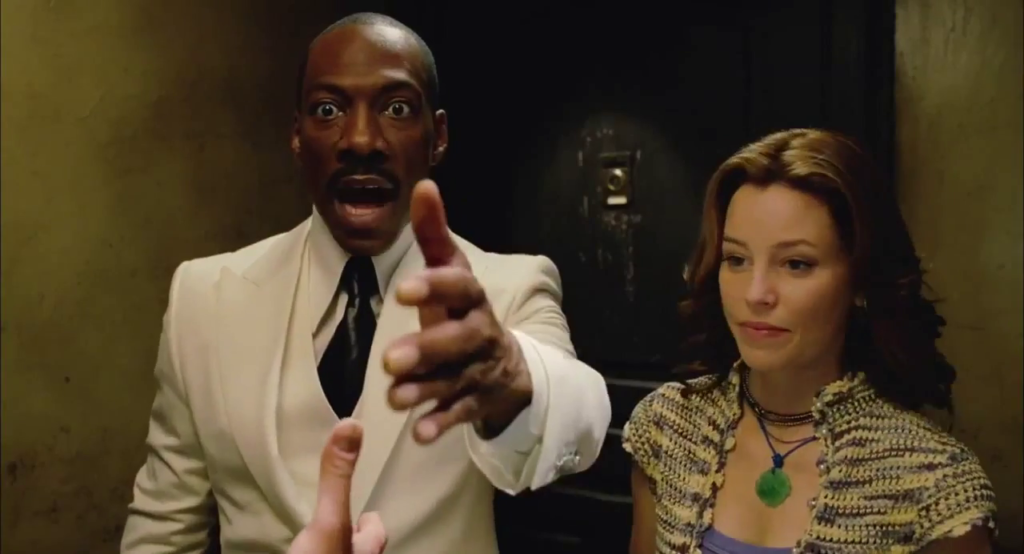
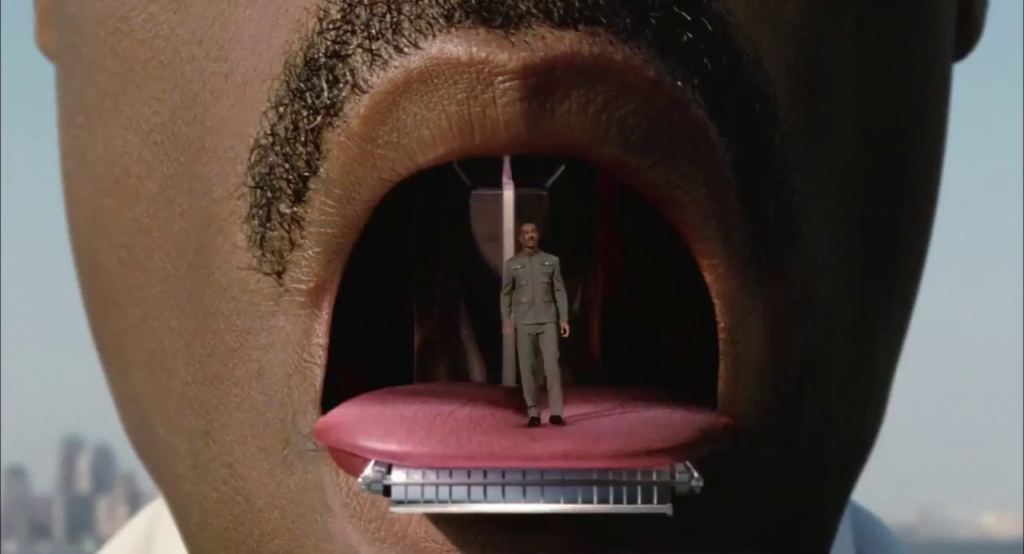
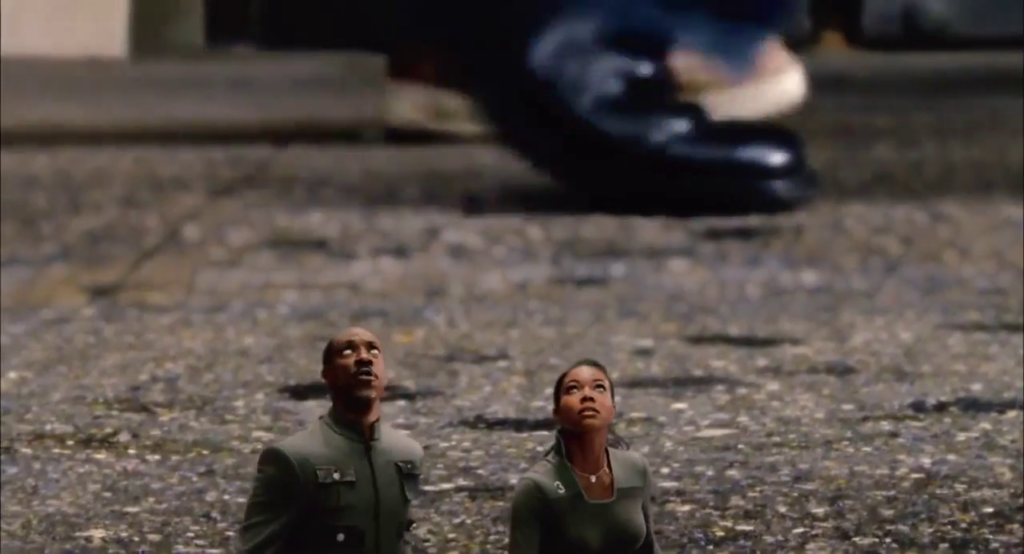
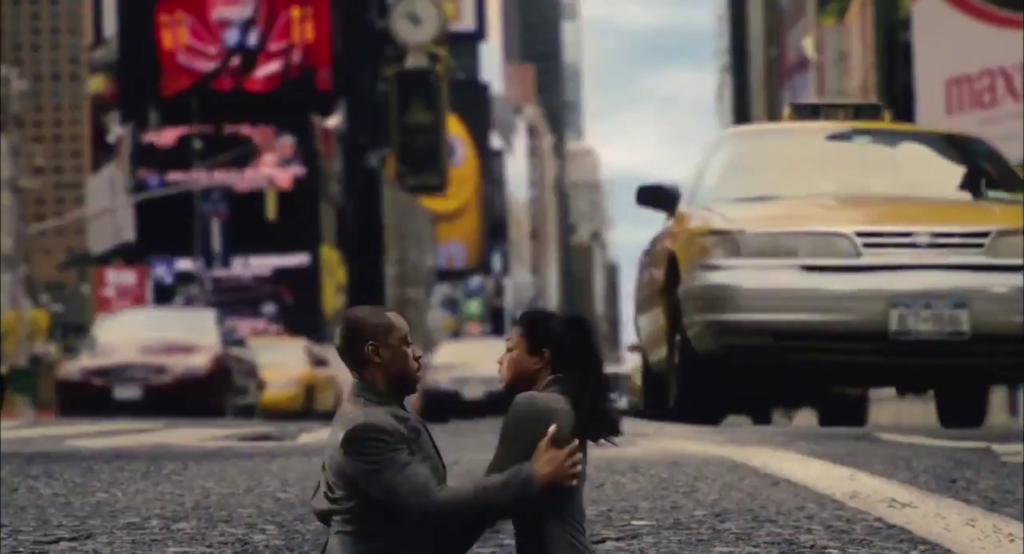
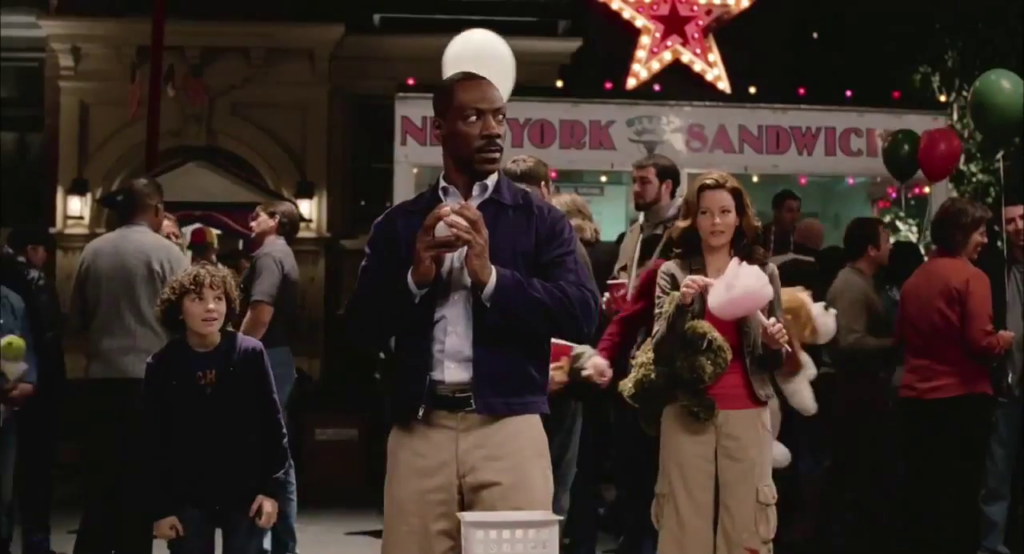
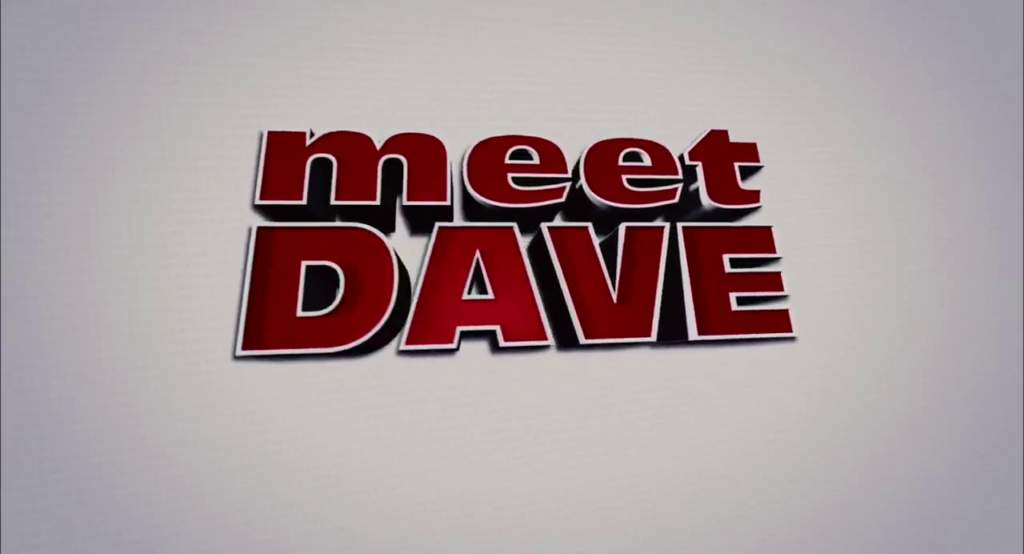
Meet Dave (2008)
Film review #598
Director: Brian Robbins
SYNOPSIS: An alien spacecraft in the shape of a human lands on Earth in search of a device that landed months earlier, that will drain the salt from the Earth’s oceans. Piloted by a crew of smaller humans (including the Captain who is the spitting image of their ship), they attempt to blend in with the crowds of New York City. Befriending a single Mother named Gina, the aliens learn about Earth and grow to admire it’s population. But as this threatens their mission to save their own planet at the expense of earth, not everyone is happy with this…
THOUGHTS/ANALYSIS: Meet Dave is a 2008 sci-fi comedy film starring Eddie Murphy. The film begins with a meteor falling to Earth and being found by a young boy. A few months later, a spaceship in the shape of a humanoid falls to Earth to look for the meteor, which is in fact a device to drain the Earth’s oceans of it’s salt. The ship is piloted by a crew of tiny humanoid aliens, including the Captain, whose image the ship is apparently based on, and the ship, attempting to blend in as a human, heads around New York City to find the meteor so that the aliens may save their own planet. Meeting Gina, a single Mother who accidentally hits “Dave” (as the crew refer to themselves), with her car, the two strike up a friendship and as the Captain learns more about the Earth, the less he is willing to sacrifice it to save his won world. The story is a very predictable affair, jumping from set piece to set piece that are each familiar and well worn in similar movies. Everything also feels very cartoon-ish, and unable to develop any depth. Gina’s friendship with Dave never expresses something more profound; in part due to her scatter-brained character, in part because I think the film maybe wanted a romantic element to it, but it never goes in that direction either. This is compounded by another issue I will mention later. There also just doesn’t seem to be any direction to the plot at all: sure, the aim is to recover this meteor, but it never feels like that is the primary concern. Even when it is recovered, the film just carries on doing things which don’t further the story or deepen the character’s relationships.
A lot of the film’s issues undoubtedly stem from the film being passed around a lot of different writers before it was finalised. Apparently, the film originally was going to be a bit more adult-oriented, but nowhere is this evident in the final version, which seems to just had every element neutered by the chain of writers that seem to have imagined the film for different audiences. Again, this leads to the film avoiding any sense of depth at any point, as the script tries to meet itself half-way at every possible point. The film is unable to create a significant connection between Dave and Gina, it resolves Josh’s “bully” problem in one quick scene, and the ending that romantically links Gina and her neighbour is something that more or less comes out of nowhere: there’s one brief scene prior to the ending that hints at a romantic connection, but it in no way builds itself up to be one of the take-aways of the film. We also know next to nothing about these aliens home world, culture or anything of the sort, which makes it difficult to understand just what they are getting from their experiences on Earth.
I suppose if you want a positive from this film, Eddie Murphy works well in the lead, given a fair amount of space to be his animated self. It’s just a shame the script doesn’t offer him much more. Gina (portrayed by Elizabeth Banks) is again animated and energetic, but her spritely aloofness renders her character a caricature unable of fathoming any emotional depth. Number Two as the villain is bland, ands again, because we nothing about these character’s backgrounds, it makes it difficult for them to stand out. Kevin Hart’s role as a kind of cutaway slapstick character is pointless: mostly because one; Eddie Murphy’s character has that role, and overshadows anything Hart does. Two, he clearly has no creative room to do anything interesting other than just scream a bit. If this was a more adult-oriented film, then maybe he could cut some more significant and risqué, but as it stands, he barely has anything to do. Production values are also fairly sloppy with some atrocious greenscreen effects for the time.
Eddie Murphy has been quoted as saying his role in Meet Dave is among the worst he has been in. It’s hard to disagree with that, although I don’t think it’s really his fault: the script has no direction, depth, or any idea who it’s aimed at, thanks to being shredded and blended by a mix of writer’s that results in a middle-of-the-road venture that doesn’t even try to stretch itself beyond that centre. It’s no offensively awful in any way, it’s just bad in the sense it’s unoriginal and uninspired, opting for safe, well-tested jokes and scenarios, ultimately wasting the talent it has on board.
-
#482 – The Almighty Tycoon of the Ninja (2008)
The Almighty Tycoon of the Ninja (2008)
Film review #482
Director: Aris Kaplanidis
SYNOPSIS: Yakinthos, also known as the Ninja Tycoon, is battling evil corporations and cyborgs in order to avenge the death of his parents and wife. he must battle an evil conspiracy to destroy him and save the world when he gets a chance…
THOUGHTS/ANALYSIS: The Almighty Tycoon of the Ninja is a 2008 Greek comedy martial arts film. From that description alone, you can probably guess this film is going to be bonkers. Let’s try and explain the story here: Yakinthos is a tycoon whose parents, themselves tycoons, were killed, along with his wife (this guy can’t catch a break can he?). Now it is Yakinthos’s turn to get revenge, and he is prepared to go through an army of robot ninjas to get it. That is basically the story…I think. This is only the second film I’ve reviewed which I could not find English subtitles for (the other being the Soviet version of A Connecticut Yankee in King Arthur’s Court), so the intricacies of the plot are lost on me; but I’m pretty sure there really aren’t any intricacies, as the film is very much a straight up homage and parody of classic martial arts movies, and all you need to know is who the hero is, who the villain is, and that the hero is going to trash an army of robot ninjas. There’s some semblance of a typical three-act structure that gives the film a decent flow, and there’s plenty of action and silly visuals to be entertaining. It’s never going to convince you it’s not just a student film filmed with a handheld camera, but there’s some gags and such that come out of nowhere that will fully take attention away from that; like why does Jesus suddenly turn up in a scene? I’m not sure even if I understood the dialogue I would be able to make sense of it (and to be honest, it’s still pretty funny without the explanation).
The film constantly feels like a student movie; not only with the film being mostly shot on a handheld camera, and in abandoned warehouses and people’s homes, but also in the fact a lot of the cinematography is a mixture of techniques film students probably learn, and the film just throws them all in to demonstrate they can do them. This would perhaps be an issue in a film that was intended for mainstream audiences or had a serious story to tell, but The Almighty Tycoon of the Ninja is just a bit of harmless fun that can get away with doing anything and everything it wants. It’s also worth pointing out that the choreography in the fight scenes is actually pretty tight. It does feel a bit too scripted and fake sometimes, but the whole film feels that way, and that’s part of it’s appeal. Also the film uses famous songs it clearly does not have the licence or permission for, and I can appreciate the film just doing whatever it wants without any regard for its own limitations.
Overall, it’s hard to be too harsh on The Almighty Tycoon of the Ninja: it sets out to make a very certain kind of film with no budget, and given that initial framework, it pulls off something absurd, over-the-top and fairly entertaining, even if it’s difficult to work out what is going on. The plot is pretty simple, but follows a trajectory and has enough structure to keep the film together. The characters are fairly distinguishable, and have enough personality to identify them. Despite the lack of budget and equipment, there’s a hidden degree of competency in its cinematography and choreography, but it definitely feels like a student film that’s showcasing a range of techniques without much curation. No matter the criticisms that be brought up though, it always knows that it’s a bit of satirical, silly fun that isn’t afraid to go overboard without fear of breaking all those filmmaking tropes and techniques it clearly knows. It’s not a film you need to watch, but if you somehow find yourself sitting through it and you’re not looking for anything serious, you can probably enjoy its humour even without the subtitles.
-
#443 – Gingerdead Man 2; Passion of the Crust (2008)
Gingerdead Man 2: Passion of the Crust (2008)
Film review #443
Director: Silvia St. Croix
SYNOPSIS: At the production of another cheap horror movie, the production team are dealing a myriad of problems that only get worse when the Gingerdead Man turns up in a box of pastry and goes about slaughtering the staff in order to enact and ancient spell to return hi to human form…
THOUGHTS/ANALYSIS: Gingerdead Man 2: Passion of the Crust is a 2008 comedy horror film and the sequel to the 2006 film The Gingerdead Man. The film centres around a low-budget film production studio, where their are problems abound with it’s latest production, and director Kelvin Cheatum is trying to keep everything together on set. They are visited by Tommy and his carer Heather from the “End of the Rainbow Last Wish Foundation” (obvious parody of the make-a-wish foundation) in order to fulfil Tommy’s dying wish of seeing where his favourite movies are made. Polly Bonderhoof attempts to bring some peace to the set with a box of freshly baked pastries from her sister, but unfortunately one of those pastries is the Gingerdead man himself, who stumbles upon a spell book that contains a spell to transmigrate his soul into a human body, requiring the blood of six victims to perform it. With this in mind, The Gingerdead Man starts off on another killing spree to accomplish his goal. The film starts off by recapping the events of the first film, but none of the original cast are in this sequel or even mentioned apart from The Gingerdead Man, so it seems pretty pointless to recap those events…unless, of course, it’s to pad out the runtime, which I’m pretty certain is what is happening. Most of the film doesn’t even feature The Gingerdead Man at all, but rather focuses on the other characters who aren’t really that interesting. It’s only in the last act that he becomes the focus of some attention, whereas for the rest of the film he is skulking around in the background talking to himself, and the kills are not a point of interest, which is pretty essential for a slasher flick.
The characters apart from the Gingerdead Man aren’t all that interesting, although they do have some development and a few twists along the way. You can’t help but feel you’re not really interested in them though in comparison to what the Gingerdead Man is doing. It’s never explained how the Gingerdead Man returned after the first one, but since none of the other characters or plot points return, it’s not an issue that is lingered upon.
Being set in a movie studio, I think it’s pretty obvious that this is used as cover to use film equipment and sets as part of the film itself to make it cheaper to produce. Some of the puppets are decently designed and animated, and the sets are at least fairly full of props and scenery to make it look somewhat genuine. One of the big problems is that a lot of the Gingerdead Man’s scenes and the subsequent gore are shot close up (so you obviously can’t see the wires or puppetry), and as such, you don’t really get a sense of action and movement from these shots. The film also makes a habit of having long scenes of dialogue that dissipates any sense of pacing or tension. I think the film is also a bit of a self-commentary on the production company Full Moon Pictures, which itself makes low-budget horror films, but whether this is something average film goers will appreciate is debatable. The film ends with the Gingerdead Man being crucified by the other puppets, which I guess fulfils the subtitle of the movie, but is the only thing that does. Overall, Gingerdead Man 2: Passion of the Crust suffers from the problems of its predecessor, but has a more interesting setting and story that ties up all the characters. It doesn’t pretend to be anything other than a low-budget slasher comedy, so you get what you would expect, but with a bit more polish than its predecessor.
-
#362 – RoboDoc (2008)
RoboDoc (2008)
Film review #362
Director: Stephen Maddocks
SYNOPSIS: A hospital is being constantly plagued by lawsuits from a greedy ambulance-chasing attorney. With another doctor quitting and the hospital fast running out of money, Dr. Roskin arranges for a new doctor to be sent, but doesn’t expect R.I.P. Healthcare to send a robot doctor, who is seemingly able to carry out medical duties without ever making a mistake. This causes problems for Jake Gorman, the attorney who is making money off all the malpractice cases, and working with Dr. Callaby, another doctor at the hospital who is in league with Gorman, the two try to find a way to stop “RoboDoc” before their money-making scheme is ruined…
THOUGHTS/ANALYSIS: RoboDoc is a 2008 sci-fi comedy film that somewhat parodies the RoboCop films, as the name implies. The film starts out introducing Jake Gorman, an ambulance chasing attorney who has made himself rich by suing doctors for malpractice. His constant lawsuits are pushing the North Mercy (or “No Mercy”) hospital to its limits, with doctors continually quitting and having their lives ruined. The opening of the film consists of a variety of gags and satirical looks at the U.S. healthcare system: from the ambulance-chasing attorneys, the lack of insurance for patients, and the ambulance driver adorning a racesuit, there’s a decent amount of content to get into. RoboDoc was written by two M.D.’s and so obviously they have the necessary experience to write about the setting of the film. I think there was definite potential in the outset to make this film offer a more thorough critique of the healthcare system through a comedic lens, but the film takes it in a completely different route and goes for just another raunchy comedy like so many we’ve seen before. Even in this direction, it needs to push some boundaries in order to be effective, but again it just doesn’t do enough to make it stand out.
After another such incident of a doctor quitting over a lawsuit, Dr. Roskin, the chief of medicine arranges the R.I.P. Healthcare company (who fund the hospital) to send another doctor, which they do, in the form of MD-63, a robotic humanoid doctor who is appointed to the hospital. While Dr. Roskin, a technophile, is reluctant to let a robot do a doctor’s job, he is slowly convinced when he sees that “RoboDoc”, as he is nicknamed, is able to complete any form of care or surgery without mistakes, and thus making him impossible to get sued. This is the core plot of the film, with RoboDoc having to earn the trust of his fellow staff, as well as learn about compassion and the elements of care that go beyond his programming. These are all story elements that have been done to death, and so there are no real surprises here. The character of RoboDoc is also essentially a carbon copy of Data from Star Trek: The Next Generation; right down to the look and voice, which is a recognisable character, but again fails to bring any originality to the RoboDoc role, and doesn’t even satirise it. The actor playing RoboDoc does do a good Data impression though. The character of Attorney Jake Gorman also is well played, and his over-dramatic performances bring some life to the scenes he is in. The rest of the cast are pretty forgettable (apart from the few scenes with the character played by Michael Wimslow from Police Academy), and don’t have much significance in the story. There are the starts of some sub-plots initiated by these characters, but they never really go anywhere, making their roles rather muddled.
RoboDoc is not a high budget film, and has to make do with a fairly limited range of effects. These effects are not particularly convincing, and combined with the uninspiring camera work and wooden acting from some of the actors, you will struggle to take it seriously. There are some positives as I have mentioned, and there are some more obscure references and satirical swipes that are more rewarding than the cheap innuendo jokes. The comedy on the whole does stick mostly to that juvenile, raunchy humour but offers nothing particularly new or memorable. Nevertheless, the film does garner a decent amount of laughs, and so as a comedy film it can’t be said to be a complete failure. RoboDoc is an uninspiring mess for the most part, but there are a few good performances and jokes that make this entertaining enough to watch if you’re not paying too much attention to some of the weaker characters and scattered story that often branches into meaningless dead ends.
-
#336 – The Incredible Hulk (2008)
The Incredible Hulk (2008)
Film review #336
dir. Louis Leterrier
SYNOPSIS: Bruce Banner is a scientist in hiding after an experiment with gamma radiation causes him to transform into a monster when he gets angry. However, General T. Ross wants to capture Banner and use his experiment to create a new breed of supersoldier. Ross starts to close in on Banner, who is rushing to find a cure for himself before he is captured…
THOUGHTS/ANALYSIS: The Incredible Hulk is a 2008 superhero film, and the second film is the Marvel Cinematic Universe after Iron Man. Surprisingly enough, the film does not start off by focusing on an origin story, instead showing this in a selection of newspaper clippings throughout the title sequence and small flashback sequences spliced throughout the film. Thinking about it, this isn’t quite such a surprising decision to make: firstly, The Hulk is a well-known superhero, and his back story of how he transforms when he gets angry is well known, and so doesn’t need to be established so firmly before he is introduced. This is in contrast to other Marvel characters such as Iron Man or Captain America, whose stories are less well-known to a general audience, and so requires establishing their origins a bit more. Secondly, there was another (unconnected) Hulk film released five years before this one which did go through the origin story, so it would still be relatively fresh in viewer’s minds, and doing it all again would not provide much new content.
The story as a whole flows quite nicely. As mentioned, the origin story is spliced throughout the film and provides enough detail for those who won’t be too familiar with the character. As you might expect, the film focuses a lot on Banner’s conflict with himself in trying to contain the hulk and control his emotions, and this is explored through his relationship to other characters in the film such as Betty Ross and her Father. It certainly has plenty of emotion behind it, and feels very genuine. These character-driven scenes are balanced out with the action sequences as you might expect, and The Hulk’s appearance is gradually built up as he attacks from the shadow’s until he is revelaed in full, solidifying his menacing and monstrous constitution. I think a weakness in the film is that all of the fight scenes are a bit too similar, but there’s not too much that can be done regarding that, as the Hulk doesn’t do anything more complex than smash things up. The film does try to escalate the scale of the conflicts, but the formula remains the same. Nevertheless, you get what you expect of The Hulk, with plenty of destruction and explosions that portray his immense strength.
The film is very nicely produced, and The Hulk looks pretty good: he towers over everyone else, and is full of detail, but also the CGI gives Hulk some more subtle facial expressions when it needs to without it looking too fake. It has aged a little, but not enough to ruin the film. Overall I was pleasantly surprised by The Incredible Hulk, and enjoyed it more than I thought I would: it tells the story a little differently, but nevertheless keeps all the aspects of the characters and story intact. There’s a nice emotional depth that humanises Bruce Banner, and provides a good contrast to The Hulk, with a nice overlap between the two. There’s some nice nods to previous incarnations of the series too. The setups to the fight scenes don’t provide too much variation, but it’s not a major problem that inhibits the enjoyment of the film, and even if you’re well acquainted with other variations of The Hulk, is still an enjoyable watch.
